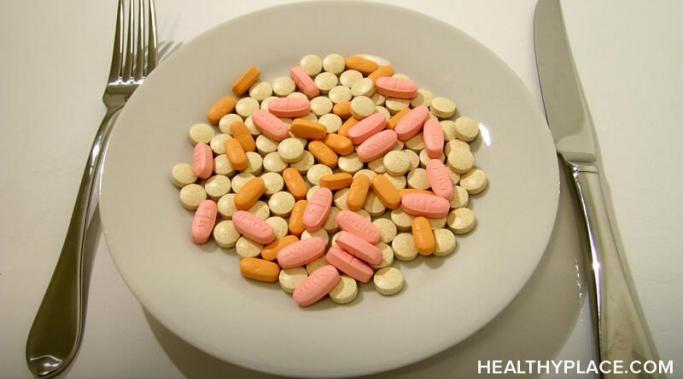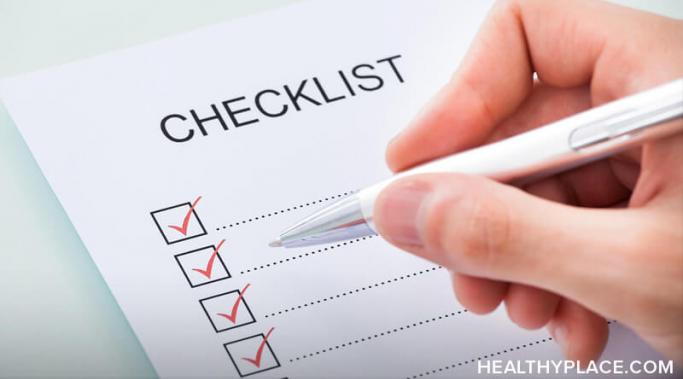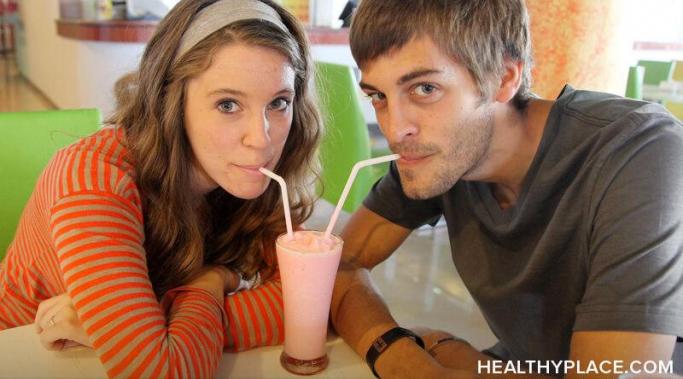My relationship with sex after trauma hasn't been a good one. You see, when I was 16, I got drunk at a concert. On the train ride home, I drifted off. When I woke up, a stranger's hand was in my underwear. I pushed his hand away and he sped into the next train car. My reaction was a feeling of shame; I blamed myself for the sexual assault. I shouldn't have gotten drunk; I shouldn't have worn a skirt; I should have been more responsible. With the support of my parents, I eventually reported the incident, but the shame remained.
Dating Relationships
There are several effects selective-serotonin reuptake inhibitors (SSRIs) might have on your relationships. Here are three common ways an SSRI might affect your romantic relationships.
My cycle of restriction has the ability to hurt my relationships. Take today, for instance.
The symptoms of my sexual assault affect my relationships by cropping up in unexpected ways, years after the traumatic event. As I slowly came to terms with what happened to me, these symptoms began to interfere with my romantic relationships in a variety of ways, both subtle and overt. I tried to navigate these symptoms of sexual assault and the further I strived to avoid them, the further they popped up unexpectedly and uninvited. Over the years, I have discovered that there are several things that my partner and I can do to help ease my mind and work towards understanding the aftermath of my assault.
Assertive communication works well when it comes to my communication styles. I have a history of vacillating between aggressiveness and passivity in relationships. Both of these styles come with their downsides and it's been an arduous journey to find an effective middle ground. Assertive communication is my middle ground.
It's good for me to self-disclose about my mental illnesses earlier in relationships rather than later. You see, when I received my diagnosis of generalized anxiety disorder and began taking antidepressants in middle school, I felt my identity shift. Finally, I had a name and a treatment for the frustrating and complicated symptoms I had experienced since I could first walk and talk. For so long, my identity and mental health were inextricably intertwined, and they still are.
I experience social life problems as a man in my 30s. It is hard to create a meaningful social life as an adult under the best of circumstances. It was different as a child or in college, when one was already surrounded by numerous peers, all searching for similar things. At this point in life, meeting new people is hard. For me, as a 30-something single man, it is especially difficult to meet people at the same point in their journeys as I am. Here are some of my social life problems and what I'm doing about them.
In a relationship, it is hard when there's one partner with mental illness, and this can take a heavy toll on the relationship. But what if both partners struggle with mental illness? Does this make it easier or harder, and is it something that should be pursued? Should you pursue a partner with mental illness if you have a mental illness too?
Sadly, there are times when love isn't enough in a relationship. There is a song that sometimes plays in my head. It is by Patty Smyth and Don Henley, and it is called Sometimes Love Just Ain't Enough. It is hauntingly beautiful, speaking of love and loss, and of when to give up in a relationship. It speaks to when love isn't enough in a relationship.
When did you know you were dating someone with a mental illness? It may have started like this: You met the most amazing person. You have been on a few dates, and the chemistry is there. It's exciting, and it's going so well. And then one night you have a deep conversation and you learn that you're dating someone with a mental illness. What now?









